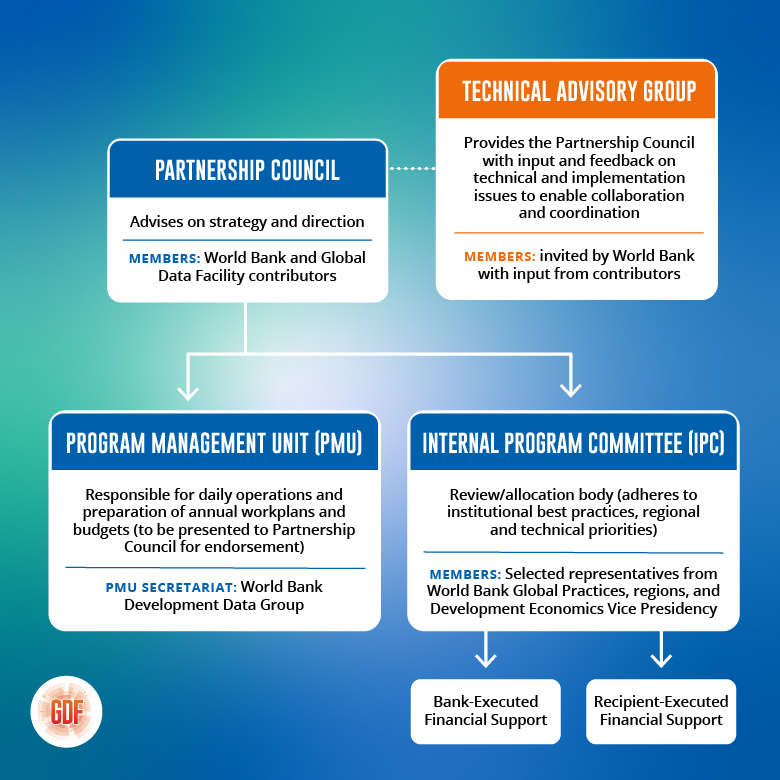The World Bank-hosted Global Data Facility is an innovative global funding instrument for the world's most critical data impact opportunities.

The Global Data Facility:
→ forms part of a new, collaborative global effort for financing data,
→ ensures that local demand drives funding,
→ serves as a global coordination mechanism,
→ helps to implement a new global vision on data to improve lives and safeguard the planet.
The Global Data Facility was established through a unique partnership between the World Bank, United Nations, and development partners to mobilize funds and coordinate support for the global data agenda by 2030. It catalyzes significant additional funding to enable long-term support and durable data and statistics transformations, including via World Bank International Development Association/International Bank for Reconstruction and Development financing.
Through investments in the fundamentals as well as at the frontier of data and statistics, it ensures flexible and adaptive country-led approaches. Operating in tandem with other initiatives—such as the Power of Data Initiative, the Bern Network’s Clearinghouse for Financing Development Data and the United Nation’s Complex Risk Analytics Fund (CRAF’d)—the Global Data Facility optimizes alignment of funding and priorities around the world.
The Global Data Facilty is the World Bank’s primary mechanism to implement key recommendations and insights from the World Development Report 2021: Data for Better Lives, enable the implementation of the Cape Town Global Action Plan for Sustainable Development Data, and close data gaps around the Sustainable Development Goals.




